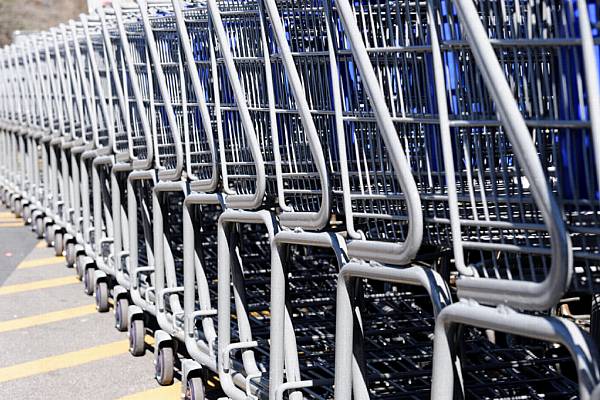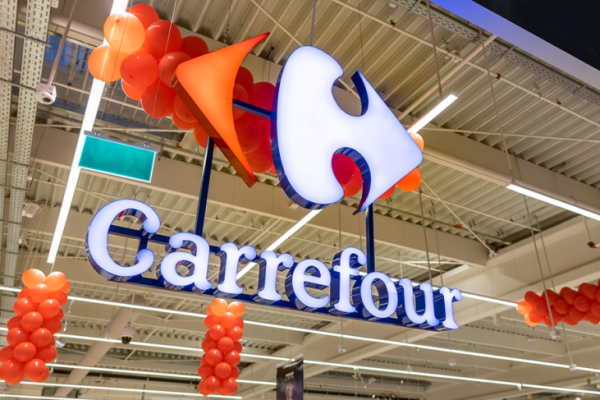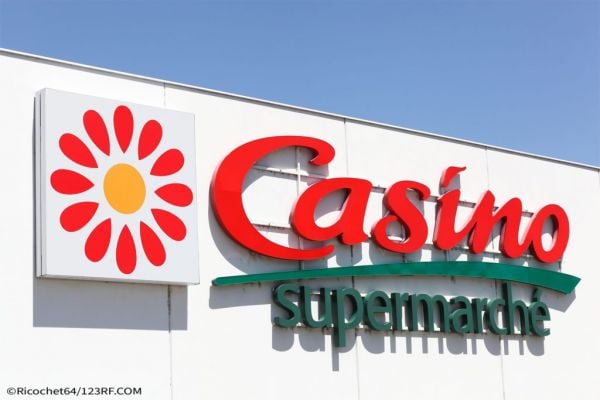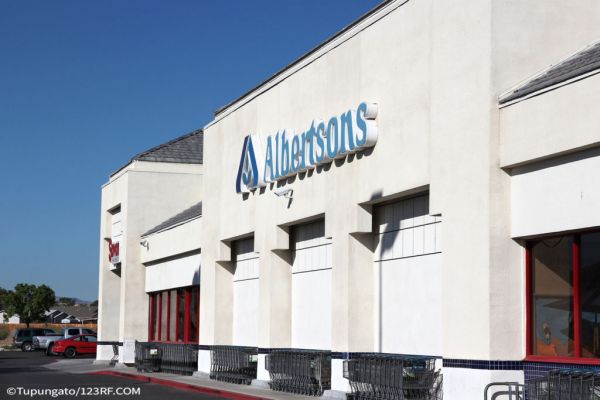Discounter Aldi Süd has positioned itself well to thrive beyond the cost-of-living crisis, as Dan Butler, Senior Insight Analyst at IGD explores.
As value-seeking shoppers flock to retailers such as Aldi, helping to stretch their dollars further, the discounter appears primed to succeed in the current environment.
However, Aldi is not dependent on tough economic times for success – its business model has propelled it to become the second-largest grocery retailer globally, trading through economic peaks and troughs.
With Aldi’s business now spanning over 13,000 stores and 18 countries, let’s examine the strategies that will power its growth over the next five years, to enable it to become a £170 billion (€197 billion) business by 2028.
1. Reinforcing Its Low-Price Proposition
In the current climate, Aldi’s low-price image is being challenged across several markets by other retailers as they ramp up their value credentials. Its strategy to add more quality and premium products has also had an impact. Aldi needs to keep prices significantly lower than its supermarket competitors to show that it remains a value champion and provides affordable products to shoppers.
To showcase its low price and value credentials, Aldi is increasing its investment in marketing. This communication is focused on the ‘Aldi price’ – delivering unbeatable value for every occasion or need. The low-price image is also reinforced by showcasing the results of independent surveys from organisations such as Which? (UK) and Handelsblatt (Germany).
Historically, discounters such as Aldi have focused on a simple, everyday low-price strategy. Weekly price reductions of up to 50% and promotional offers on grocery products are now part of its pricing strategy. These aggressive prices, changing weekly on both private label and branded products, are used to drive footfall and frequency of visits.
To offer more competitive prices compared to its rivals, Aldi is also investing in its private label supply chain to reduce costs through economies of scale.
2. Evolving The Store Model
Aldi has moved away from its one-store-fits-all model, creating more varied concepts as part of its strategy to enter new and more diverse locations across all markets. This provides it with greater access to sites and more flexibility with location decisions. We also see it continuing to evolve its model towards a more supermarket-like experience, with enhanced design and services to align with new shopper expectations.
Aldi’s focus on operating in diverse environments is leading to a need for the retailer to flex its store model. New stores are becoming either bigger or smaller, depending on the location. Aldi is also using the expansion and upgrade of its network as an opportunity to ensure its new buildings are more sustainable, using recycled materials, adding solar panels, and implementing more efficient energy systems.
The retailer is at the forefront of the ‘discount-venience’ movement, blending discount and convenience concepts. New formats have been launched in urban areas in Australia, China, and the UK. These stores have a more modern design and a tailored assortment focusing on food-to-go, prepared meals, and convenient solutions for top-up shopping missions.
3. Creating A Differentiated Offer
Aldi’s assortment is expanding and becoming more complex. Along with value-seekers, the retailer also appeals to savvy scratch cooks and those looking for inspiration and trying new items. The different Aldi operations globally are adding innovative and differentiating products to support this.
These products, often exclusive, are usually from small and independent brand suppliers. Aldi has created an incubator for these suppliers and start-ups called ‘What’s Next’, supporting them through the entire process.
Improving the sustainable credentials of the entire assortment is a priority. While some decisions are global, such as the reduction of packaging and plastics, others are local, to align with shoppers’ expectations. The next generation of shoppers is more focused on sustainability, and increasingly this will become part of the ranging decision process. The challenge for retailers is often the ability to do this in a cost-effective manner. Aldi has the benefit of being able to leverage its global scale.
The expansion in urban locations drives the need for more convenient food solutions. Aldi is rapidly expanding its prepared meals and food-to-go range. While value remains key for food-to-go solutions, more premium and seasonal products are listed for prepared meals. This is also being supported by the rollout of self-checkouts to meet the needs of convenience missions.
4. Accelerating Online Transformation
The pandemic triggered the need for Aldi to accelerate e-commerce development. Over the last three years, it has launched click and collect and home delivery services in several European countries. Non-grocery remains a key footfall driver to stores, and we saw the price point of 95% of the assortment lowered to less than £20 (€25) during the cost-of-living crisis.
Its online presence in non-grocery is mixed across markets with investment to strengthen in continental Europe, but a closing of the service in the UK. In the USA, it is launching a fully-owned grocery delivery service, while it is testing a home-delivery service in Germany.
The retailer continues to test-and-learn quick commerce partnerships with operators such as Deliveroo, Instacart, and Roksh. This enables it to have a grocery delivery service in major cities without the upfront investment required for a home delivery service. However, due to the challenges quick commerce operators are facing, a major rollout remains uncertain.
Aldi In 2028
Looking ahead to 2028, it’s clear that Aldi is a business with significant momentum. The current trading climate will see it win millions of new shoppers globally, and it’ll be working hard to hold onto them as household budgetary pressures ease.
With plans to continue growing its store base at pace, flexing its offer to reach high-density urban centres, and leveraging its global scale and supply chain to further reduce costs, Aldi is likely to remain a formidable competitor.
This article was written in partnership with IGD. Stay up to date with the latest international retail insights with IGD’s weekly newsletter: www.igd.com/about-us/newsletters.














